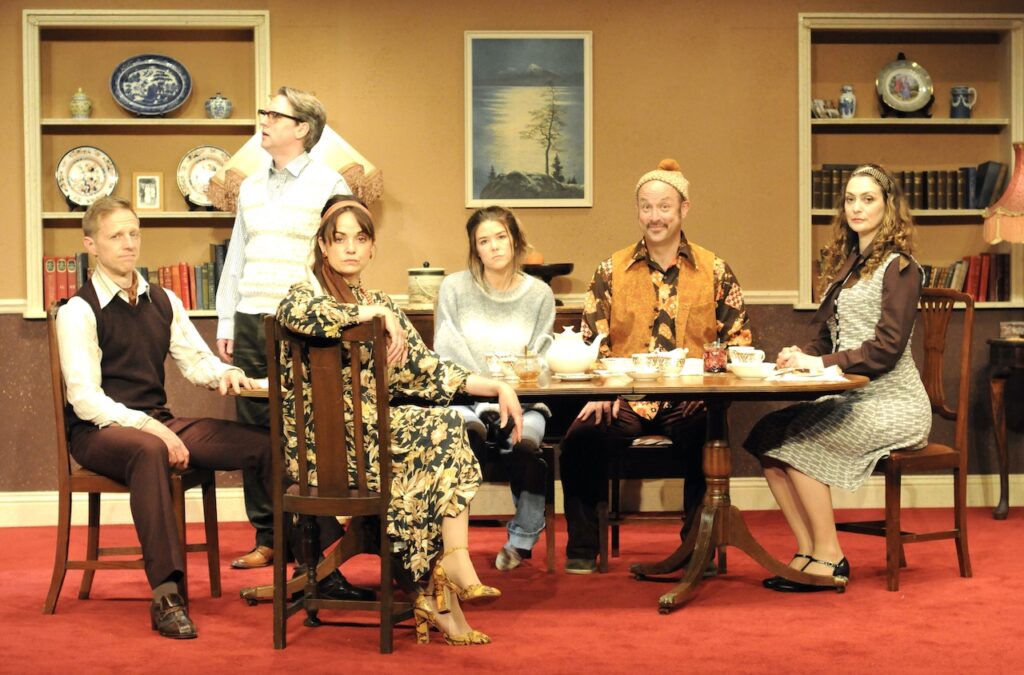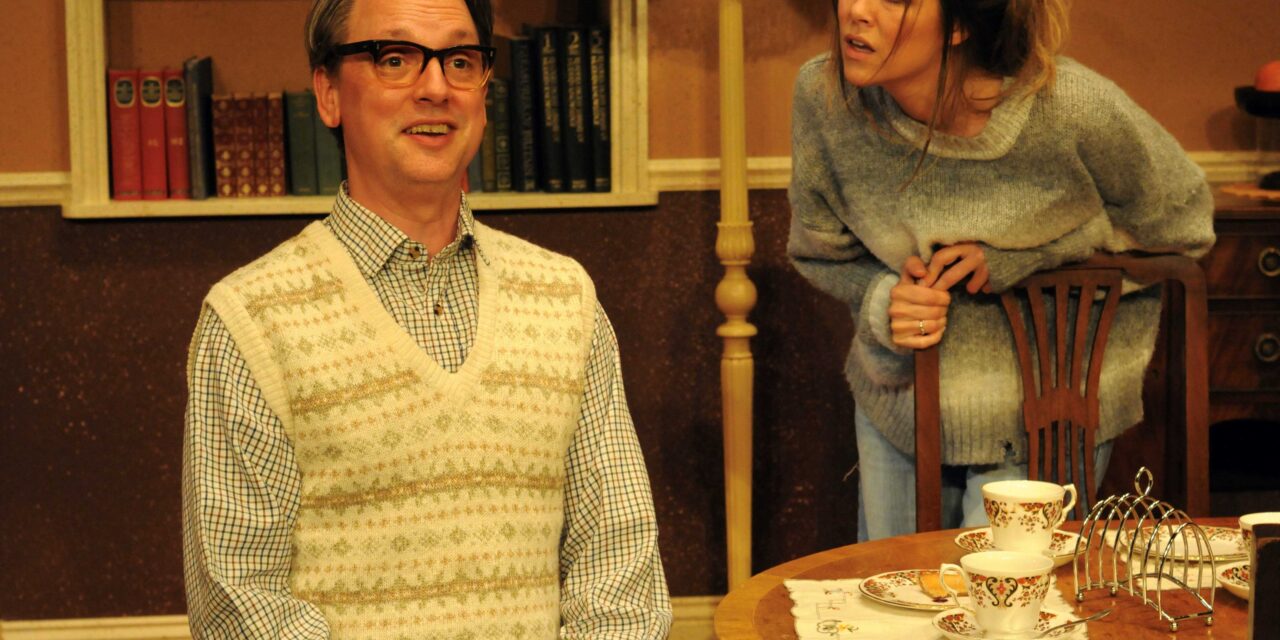
4 – 7 September
Alan Ayckbourn is one of our most successful and prolific playwrights, celebrated for his comic farces which centre largely on the trials and tribulations of the British middle classes. Written in 1973, the multiple award-winning Table Manners is one of a trilogy of plays collectively known as The Norman Conquests. All three plays, including this opening one of the three, centre on the exploits of the protagonist Norman in his attempts to seduce his sister-in-law Annie, with whom he has planned an illicit weekend away, and the confusions and arguments which abound once the planned tryst is discovered by Norman’s wife and other members of Annie’s family.
Set entirely in the dining room within Annie’s mother’s house, the narrative cleverly intersects with the other two plays which are set in the garden and kitchen, yet all three are stand-alone pieces in their own right and are not intended to be performed in sequence. The scenario provides a well-ploughed furrow for comedy and drama, as the disastrous consequences of Norman’s philandering actions come to light. Welcome to vintage Ayckbourn.
Producers Phil Stewart and Ben Roddy are at the helm for this latest stage incarnation, and the result is slick, well-rehearsed and, at times, very funny. Ayckbourn’s script crackles with his customary clever wit, even fifty years on, but the humour only really comes alive when delivered by a talented cast, as is the case here, with strong performances across the board. Ross Waiton gives a charismatic and engaging turn as Lothario Norman to Lucy-Jane Quinlan’s Annie, while Joanna Simpkins is her wonderfully neurotic sister-in-law, Sarah. Toby Manley pulls off the difficult trick of infusing warmth and compassion into the hopelessly wooden Tom, Annie’s suitor, with Polly Smith’s haughty Ruth and Pete Ashmore’s smarmy Reg completing the cast. I imagine little has changed from the original production, from the wonderful 70s costumes and music to the staging and set design. Credit must go to Geoff Gilder for the authenticity with which he has created the dining room from my own childhood in 1970s suburban Hertfordshire.
And yet clearly society and its attitudes have changed much in the last half a century. We laugh at this play for the same reasons that we still laugh at the celebrated situational comedy of Fawlty Towers, Rising Damp or Some Mothers Do ‘Ave ‘Em, and other 1970s TV stablemates, even though we recognise how much times have changed since they were first broadcast and despite the fact that some scenes, lines and attitudes sit considerably less comfortably than perhaps they once did. Viewed from 2024, Norman is a sexual predator whose despicable behaviour seems arguably less morally repugnant, and more justifiable, when seen in the context of social attitudes and mores of the time. To this end, a play which began life as a farcical comedy of manners and misunderstandings is perhaps – unintentionally? – more thought-provoking than ever, especially when it invites us to challenge our views and principles around what is acceptable and appropriate behaviour. Whilst Alan Ayckbourn continues to write, produce and direct new material – incredibly, his ninetieth play premieres this autumn – perhaps there is still much to learn from, and enjoy, in his earlier work.
★★★★☆ Tony Clarke 5 September 2024
Photography credit: Phil & Ben Productions Ltd.


